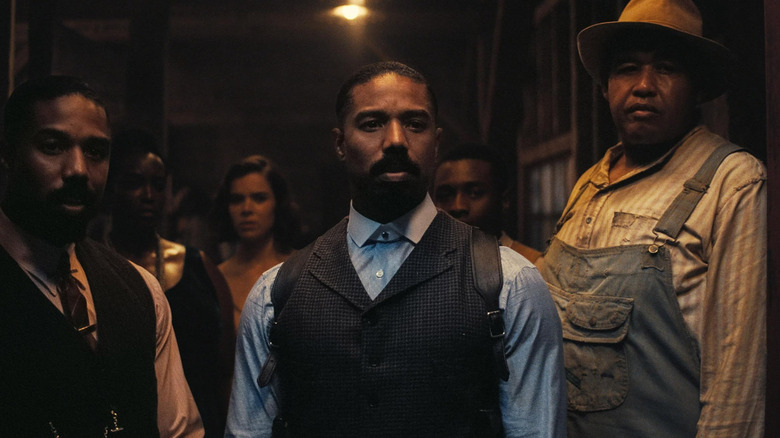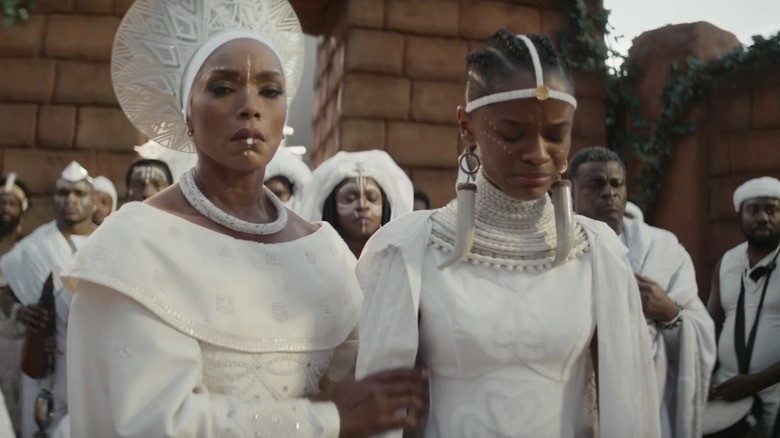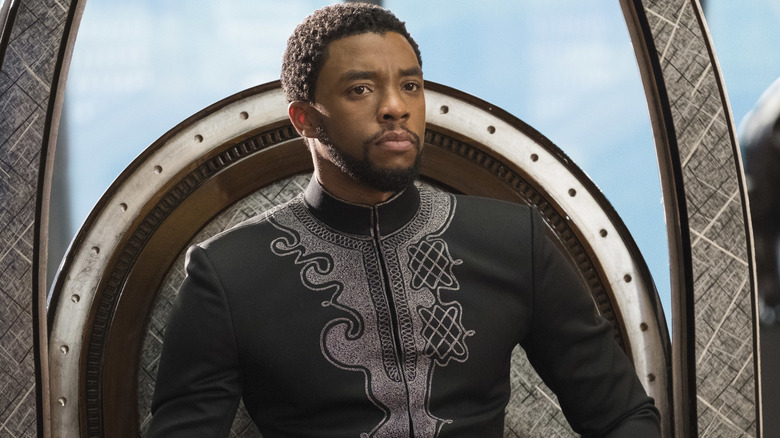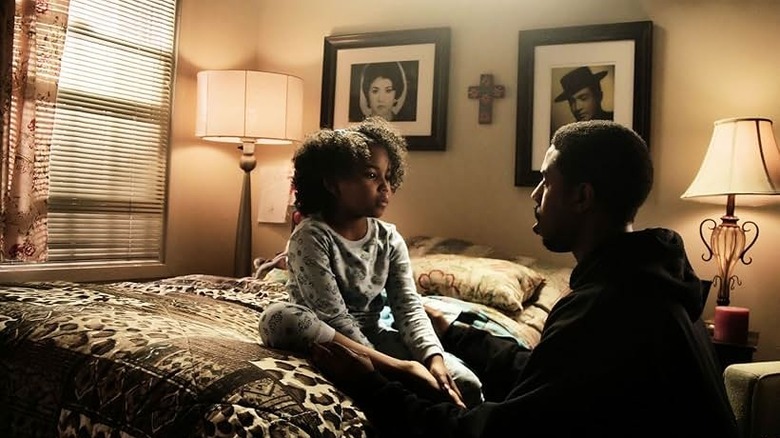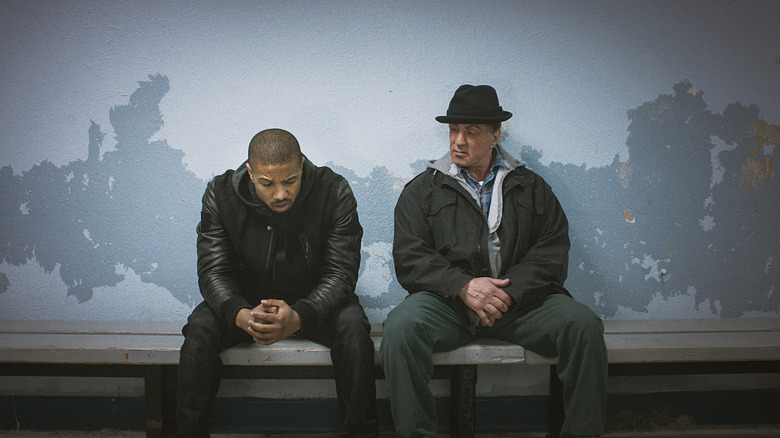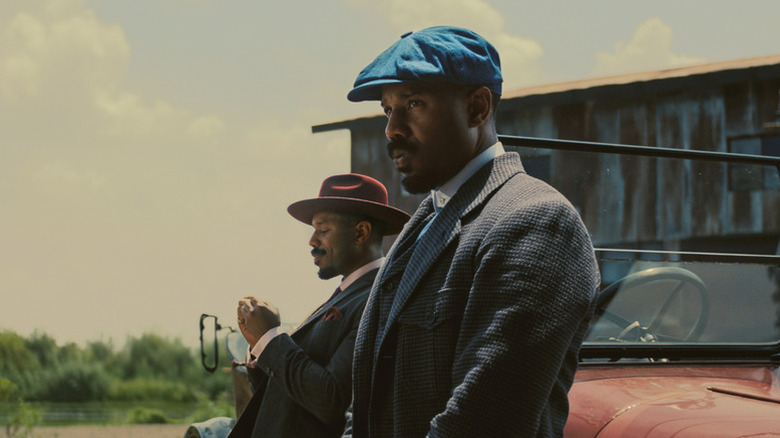Every Ryan Coogler Movie Ranked (Including Sinners)
Since his directorial debut "Fruitvale Station" premiered in 2013, Ryan Coogler has been on a filmmaking journey. With five films under his belt, Coogler has showcased remarkable craftsmanship and storytelling on a scale that runs the gamut. Beginning with a character-driven drama based on a real-life tragedy, to transitioning into big studio filmmaking by expanding the canon and cinematic legacy of one of our most-celebrated film franchises, to bringing us one of the most culturally significant blockbusters of the century, to helming its sequel amidst the worst circumstances possible, and to now bring his original passion project with the biggest creative statement of his career, Coogler has proven himself as one of our most exciting filmmakers working today.
Throughout five films, with the electric movie star that is Michael B. Jordan by his side through what is shaping up to be the most important director/actor collaborative relationship since Martin Scorsese and Robert De Niro's impeccable run of essential films, Coogler's cinematic power is only rising. And what makes his ascent to household name status so satisfying is that upon his fork in the road moment following his initial contributions to superhero cinema, he had two different paths. On one side, he could have turned out like his Marvel Cinematic Universe contemporaries Anthony Russo and Joe Russo, whose films, following their record-breaking "Avengers" projects, are not only lackluster and unfulfilling, but leave no lasting impact as they remain forgettable products exclusive to streaming, with their latest Netflix disaster, "The Electric State" costing a whopping $320 million. On the opposite side, he could have taken a page from the playbook of Christopher Nolan, who, much like the Russo Brothers, has made significant contributions to superhero cinema. But unlike the Russos' recent directorial efforts, Nolan's films are some of the most fulfilling pieces of cinema released over the last 15 years, and further embrace the theatrical experience as essential to our culture rather than bending the knee to the advent of streaming services.
Thankfully, Ryan Coogler followed the Christopher Nolan playbook, even thanking him and his wife/producing partner Emma Thomas in the end credits for "Sinners." And let's just say that with Coogler's current career trajectory, we have not seen a director's rise this exciting since Nolan's "Inception" hit theaters nearly 15 years ago, dominating the cultural zeitgeist. Here are all five of Coogler's films ranked, and thankfully, they all range from very good to absolute cinema (insert Martin Scorsese raising both his hands meme here)!
5. Black Panther: Wakanda Forever
Let's face it: Ryan Coogler was dealt the worst possible hand when it came to helming the sequel to his zeitgeist-defining comic book film, "Black Panther." With the tragic passing of lead star Chadwick Boseman, Marvel Studios opted to write King T'Challa out of the story rather than recast him with a new actor in the role. While some may debate whether or not this was the right decision, it cannot be denied that Coogler and company handled what was essentially a memorial tribute film to a modern cinematic legend with utmost class. Although it exists with a heavy asterisk as a sequel given tragic real-life events, it still lands well as a film on its own. Much credit to Letitia Wright, who never imagined that following her initial casting as Shuri in the first film would ever have to step up under such heartbreaking circumstances. Thankfully, she holds her own as the new protagonist, leaning into her scientific genius and amiability with her fellow Wakandans.
Rounding out the cast are returning stars Lupita Nyong'o, Danai Gurira, and Winston Duke, each expanding on their unforgettable roles from the first film with such ease amidst the real-life tragedy that is also reflected in the script. Tenoch Huerta Mejia is a particular standout here, bringing the film's primary antagonist, Namor the Sub-Mariner, much pathos and intimidation on screen. Even Michael B. Jordan makes a brief surprise return, effectively using his one scene to further challenge Shuri's journey. But of course, it was Angela Bassett as Ramonda who runs away with it all. Bassett's powerhouse performance was not just worthy of her Academy Award nomination, but arguably should have won her the Oscar.
Where "Black Panther: Wakanda Forever" ultimately falls short is in its broader ties with the larger MCU. No disrespect to Dominique Thorne, who is a fine actress, but the addition of Riri Williams/Ironheart felt like a studio mandate. Ryan Coogler tries his best in implementing her into the story, but the typical MCU worldbuilding detracts from the film's urgency. Thankfully, the film succeeds in its most important aspects: characters, story, and emotional resonance. It is virtually impossible to finish this film without shedding a few tears, especially when the MCU's best mid-credits sequence reveals that T'Challa's legacy will carry on through his and Nakia's son, Prince T'Challa.
4. Black Panther
February 2018. You just had to be there. Fewer films of the 2010s have dominated the pop cultural zeitgeist the way Ryan Coogler's "Black Panther" did in its initial release. The movie was everywhere, whether it was through promotional material or music from Kendrick Lamar's soundtrack inspired by the film was playing on the radio. For all the hype and obvious cultural significance that the film boasted, the pressure was on for it to deliver. Thankfully, Coogler knocked it out of the park with the impeccable worldbuilding of Wakanda, unforgettable characters, and by injecting real-world issues through an easily digestible and thoroughly entertaining superhero film.
Following Chadwick Boseman's scene-stealing debut in "Captain America: Civil War," "Black Panther" was his first (and tragically, only) chance to solidify himself as a bona fide superhero legend in a standalone film. Boseman's footprint on the character of King T'Challa is as significant as Christopher Reeve's footprint was on Superman. With Boseman at the lead, he was surrounded by perhaps the best collection of actors in any non-Avengers MCU film, with memorable turns from Lupita Nyong'o, Danai Gurira, Letitia Wright, Angela Bassett, Daniel Kaluuya, Winston Duke, Martin Freeman, and Andy Serkis. But if we are being honest, the standout of this incredible film was Michael B. Jordan as T'Challa's long-lost cousin, Erik Killmonger. Every scene involving these two is as compelling and dynamic as superhero cinema can get, even if the film's VFX are a bit lackluster.
I had the opportunity to attend Marvel Studios' San Diego Comic-Con Hall H panel, where "Black Panther" was highlighted. Ryan Coogler, Chadwick Boseman, and the rest of the film's main ensemble were all in attendance, and when the exclusive sneak peek played, with Kendrick Lamar's "DNA" playing during the car chase sequence in Busan, the entire audience applauded. I live-tweeted my reaction to the footage, which Boseman himself liked on his official Twitter account. His acknowledgement of my excitement will remain one of my core memories as a film enthusiast.
3. Fruitvale Station
Ryan Coogler's first film is one of the best directorial debuts in modern cinema. "Fruitvale Station" recounts the true story of Oscar Grant, a 22-year-old black man who was unarmed when he was shot and killed by police at the Fruitvale BART station in Oakland, California, in the early morning hours of January 1, 2009. Grant's killing sparked massive protests in Oakland, and this film chronicles the events leading to his death, giving audiences an intimate look at the young man's life — a life that many viewers can see themselves in, and a life that was unjustly cut short.
Whenever reflecting on days of unspeakable tragedy, we often remember the most mundane details. We remember how we woke up, the text messages we sent to our loved ones, the distinct smell of fresh air as we walked outside, and salivating over the thought of what we might have for dinner that night. The seemingly mundane, yet oh-so relatable life of Oscar Grant is on display here, and thanks to Ryan Coogler's confident yet considerate direction, we get a beautiful cinematic exercise in radical empathy for a young man who should have lived to see his daughter grow up.
At the center of "Fruitvale Station" is Michael B. Jordan, in what was, until very recently, his best performance. Jordan beautifully captures the essence of a young man who just wanted to mature as an adult, live a long future with his partner, and raise his daughter. Adversarial forces have historically justified the killings of unarmed Black men by police officers by diving into some of the more "problematic" elements of their personal lives, and thankfully, Coogler's film serves as a cinematic antidote to such inhumane headlines that often turn these men's lives into cold statistics. Sure, Oscar Grant likely had his issues, but none of his experiences or behavior justified his killing. "Fruitvale Station" showcases the power of empathy through impeccable filmmaking and serves as an important foundation for Coogler's storytelling sensibilities.
2. Creed
Following the critical success of "Fruitvale Station," Ryan Coogler made a significant step in his filmmaking career with "Creed." The film was not just his first foray into the big studio system, but also the opportunity to expand the cinematic legacy of one of the greatest film franchises of all time: "Rocky." Of course, he brought his friend Michael B. Jordan along for the ride. The seventh film in the franchise and the first in its standalone spinoff series, "Creed" tells the story of Adonis Johnson (Michael B. Jordan), the illegitimate son of Apollo Creed (Carl Weathers). Adonis looks to establish his own boxing career, so he moves to Philadelphia to seek the mentorship of his late father's former rival-turned-friend, Rocky Balboa (Sylvester Stallone).
For nearly two decades, one of Hollywood's biggest trends has been legacy sequels, which are sequels to beloved films from decades past attempting to honor those original films with a new story. Unfortunately, most legacy sequels are nothing more than a cheap ploy to cash in on the audience's nostalgia for certain intellectual properties and are not as interested in giving new characters their own distinct stories if they are not so explicitly tied to the franchise's heavyweights. Thankfully, "Creed" stands on top of almost every legacy sequel ever made, mainly because although the film's story is literally about legacy, it understands that audiences should be invested in Adonis whether or not he is a Creed, and Ryan Coogler's masterful direction with the script he co-wrote with Aaron Covington gives Adonis his own three-dimensional story.
At the time of the film's release, Michael B. Jordan was lauded as one of the most promising up-and-coming movie stars of his generation. He sadly had to deal with the flop that was Josh Trank's notorious bomb, "Fant4stic" a few months prior, but "Creed" was the redemption he desperately needed. In his most prominent lead role at that point, Jordan distinguishes Adonis as a character who is not a clone of his father Apollo nor a retread of Sylvester Stallone's Rocky. And speaking of Stallone, he has never been better in a film than here, channelling his (at the time) 40 years of playing the Italian Stallion into one of the most heartbreaking performances of the 2010s — a performance that he was woefully robbed of his Academy Award for. With the stellar pairing of Jordan and Stallone, along with the refined confidence of Ryan Coogler's filmmaking, "Creed" arguably measures up to the unrealistic standard that "Rocky" gave audiences in 1976 building up to one of the most satisfying climaxes in sports movie history when the Bill Conti's original "Rocky" theme kicks in during the 12th and final round of Adonis' match. Talk about pure cinematic bliss.
1. Sinners
There is a reason why I compared Ryan Coogler's career trajectory to that of Christopher Nolan. Both filmmakers have had similar journeys, bursting onto the independent filmmaking scene with a remarkable character-driven drama ("Fruitvale Station" and "Memento," respectively), entering the big studio system to refine their craft and build confidence ("Creed" and "Insomnia"), and to be granted the opportunity at bigger-budget tentpole superhero films ("Black Panther" and "Batman Begins"). Before Nolan completed his "Dark Knight" trilogy, he helmed "Inception," an original idea that helped turn him into a household name beyond Batman. On a grand scale, we have not seen a filmmaker on a comparable scale on that same path for nearly 15 years. Now, Coogler finally carries on that torch with "Sinners."
At this point, film fans all over the world continue to gush about Ryan Coogler's "Sinners" (you can read /Film's glowing review here). This film feels like the kind of project that Coogler has been building towards for over a decade, using his clout to bring audiences a bold, thematically rich, and supremely entertaining genre blockbuster. What is most noteworthy is that "Sinners" is Coogler's first film that is wholly original, not based on a true story, an existing film franchise, or a comic book, and he knocks it out of the park, and then some.
Michael B. Jordan gives the performance of his career as the Smokestack twins, distinguishing them both and providing so much history and depth, paired with Jordan's electric screen presence and charisma. In regard to the supporting players, all of them are excellent. Hailee Steinfeld, Jack O'Connell, Wunmi Mosaku, Jayme Lawson, Omar Miller, Li Jun Li, and Delroy Lindo are all memorable here. However, the film's standout is Miles Caton, who makes his cinematic debut in what may be the breakout performance of the decade.
With incredible performances, impeccable use of music through Ludwig Göransson's original score and original blues songs, stunning cinematography that is beautifully captured through IMAX celluloid, and a fresh blend of the western and horror genres, "Sinners" is Ryan Coogler's magnum opus. In an already-impressive career, his latest film stands out as his greatest achievement thus far. I look forward to what Coogler has in store for us in what is shaping up to be a landmark filmography.
